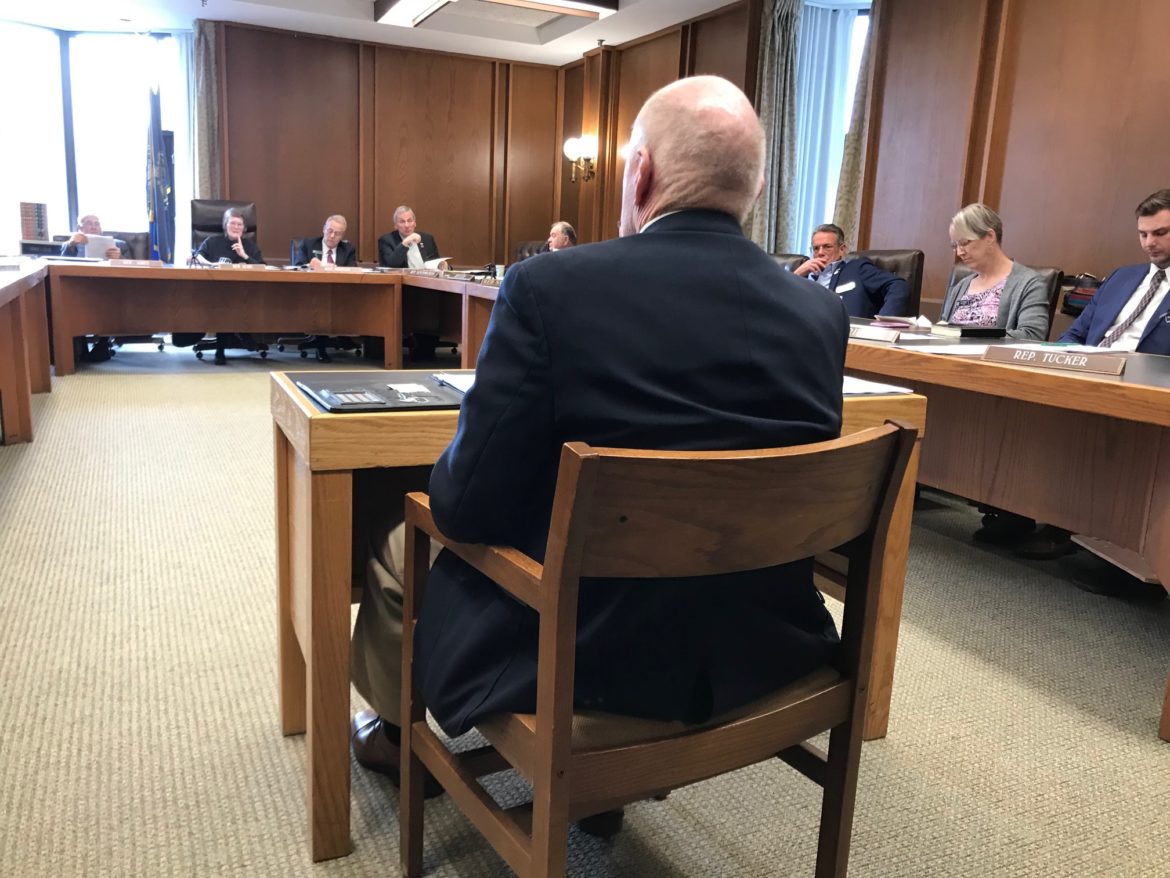By GARRY RAYNO, InDepthNH.org
CONCORD — Public education needs more money and taxing electronic products at 4.3 percent would help fill the void, the House Ways and Means Committee was told Wednesday.
“We do not have enough money for education,” said Rep. Skip Cleaver, D-Nashua, the prime sponsor of House Bill 1492. “Video games are kind of the opposite of education and what is opposite of education ought to fund it.”
Cleaver said it is embarrassing how little the state supports public education from kindergarten to 12th grade while state colleges and universities have the highest tuition in the country.
But some committee members and speakers at the public hearing said the proposal would send the wrong message, would kill the state’s no-tax brand, hurt cross-border sales and would be regressive, disproportionally hurting low-income residents.
Republican Gov. Chris Sununu registered his opposition to the bill although he did not appear at the public hearing.
Greg Moore of the group Americans for Prosperity said there is an old adage that if you want more of something, you subsidize it, but if you want less, you tax it.
“This is really a tax on technology,” Moore said. “We ought not be discouraging technology here in New Hampshire, we ought to be encouraging technology in this state.”
The NH Retail Merchants Association also opposed the bill, saying it would spell the end of the state’s tax-free shopping brand.
“Once you can no longer say ‘Tax-free shopping,’ the New Hampshire advantage is over,” said the association’s lobbyist Curtis Barry. “What is important to the retail association in New Hampshire is tax-free shopping, we’ve built an economy around it.”
The proposal would raise money for education by taxing products critical to today’s education, making public education more expensive, Barry noted.
Several members of the committee were concerned that taxing electronic products would be extremely complex as computers and other devices are built into other products with Rep. Patrick Abrami, R-Stratham, noting minivans often have several televisions.
Others were concerned the sales tax would hurt sales to out-of-state residents.
Rep. Edith Tucker, D-Randolph, said many members of her family live in Massachusetts and buy all their electronic equipment in New Hampshire because of Massachusetts’ 6 percent sales tax.
“Do you have any estimate of how many sales are to out-of-state customers,” Tucker asked, noting people are not going to drive 100 miles to save a few percentage points in sales taxes.
“There are other reasons people come to New Hampshire from Massachusetts,” Cleaver said, “not just for electronic devices.”
He told the committee his best “guesstimate” was the sales tax would produce about $200 million, and said he arrived at 4.3 percent because it was between 4 and 5 percent and less than surrounding states’ sales taxes.
Melissa Rollins, administrator at the Department of Revenue Administration, said she could not say with any certainty how much the tax would raise as sales information breaking out electronic products is not available here or in other states.
Rollins did say the levy would require three new positions to administer the tax and educate merchants, and between $1 million and $2 million in system upgrades to include the levy in its computer system.
The DRA is currently bringing a new electronic system online and Rollins
said the timing for a new tax may “make that a little tighter.”
Several committee members questioned if a break out of one type of product
would be possible, but Cleaver said supermarkets do that with prepared meals,
which are subject to rooms and meals tax while most other products are not.
Cleaver said he initially envisioned a tax on video games, but that did not produce enough revenue so he expanded it to electronic products with a screen.
“If you’re going to fund education, you have to get money,” Cleaver said, “and you have to get it from some kind of taxation.”
Under the bill, the 4.3 percent sales tax would be imposed on televisions, video games and computers and their related equipment including iPads, printers, scanners and faxes; and smart and cell phones and their related equipment.
Committee chair Rep. Susan Almy, D-Lebanon, said it may be easier to clarify that only these electronic products would be subject to the tax.
In a press release House Minority Leader Dick Hinch, R-Merrimack, said, “This is a sales tax on products that families and businesses use every day that will cost us millions.”
Hinch said he and other Republicans were shocked by the proposal.
The committee did not make an immediate recommendation on the bill.
Garry Rayno may be reached at garry.rayno@yahoo.com





